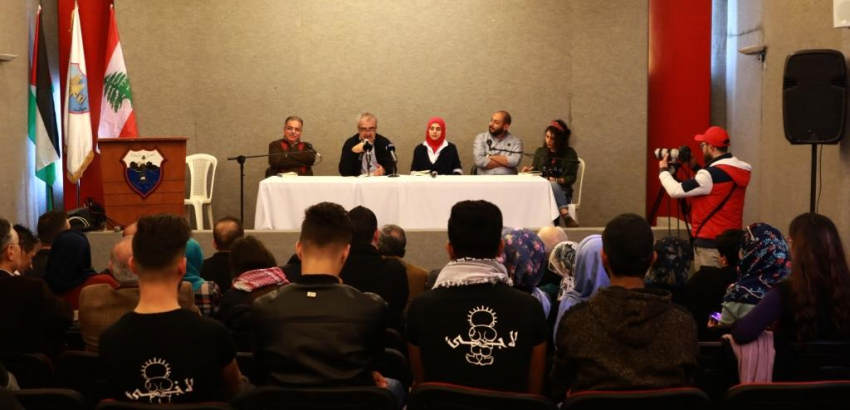

This is Radio Mar Elias Refugee Camp
With support from Selat: Links through the Arts and in the context of the grant to organisations - 5th edition, the Public Works Studio concluded on Saturday, 27 January 2018 the series of workshops of its Kilna ‘al Hawa Sawa project. Targeting a group of young adults from the Mar Elias refugee camp in Beirut, the workshops addressed the issue of public spaces in the refugee camp and how to conduct research on and investigate the history of these spaces. The training also examined the means and possibilities to revitalise public places with a view to serving and fulfilling wishes and actual needs of the refugee camp residents from different generations.
The closing event featured a presentation of a set of maps, which had been designed by participants in the workshops. Photographs of playgrounds in the refugee camp were also showcased.
The event was organised in parallel with broadcasting the first podcast produced by a small group of trainees in the project. The podcast reviewed the memory and future of the neglected playground in the refugee camp. This recording was made at the studio of the Arab Resource Center for Popular Arts (Al Jana).
Following the presentations, a conversation took place with residents of the refugee camp about the history and memory of the place. The radio show can be accessed on a new website of Kilna ‘al Hawa Sawa project, Radio Mar Elias (Playing in the Refugee Camp): https://radiomarelias.wordpress.com/.
Sidon celebrates the launch of 11: Narratives from the Palestinian Displacement
On Thursday evening, 22 February 2018, 11: Narratives from the Palestinian Displacement was launched at the Sidon Municipality Hall, South Lebanon. The book is the product of a training workshop on creative writing, which brought together amateur writers of different ages and from across Palestinian refugee camps. The workshop was managed by Lebanese novelist Hassan Daoud and organised by the Institute for Palestine Studies (IPS) in Beirut (Selat: Links through the Arts grant to organisations - 4th edition).
In her opening remarks, Mrs. Randa Haidar from the IPS summed up work progress on the workshop and production of the book, which includes a variety of stories and experiences of 11 writers who reflect on their lives in the Diaspora.
Reviewing his experience as a trainer and supervisor of the workshop, Daoud talked about the good relationship he built with the trainees over the weeks of training.
Daoud introduced the contributors who participated in the workshop. Yousef Nana, Ruba Rahmah, Taha Younes, and Mira Saidawi took turns reading excerpts of their published texts. The audience showed their admiration of, and sympathy with, the work.
